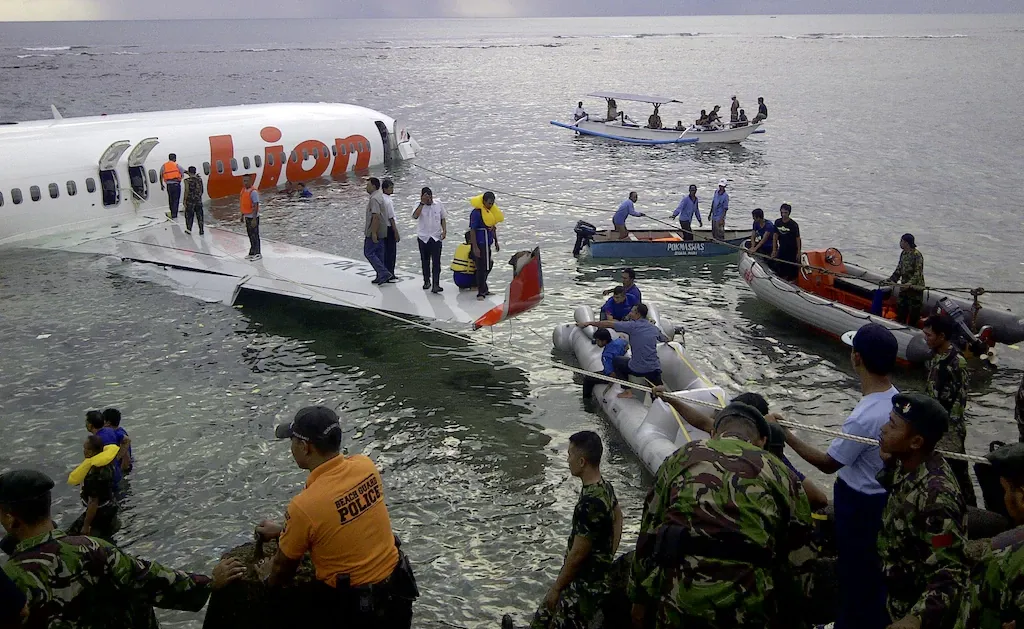
Drugs chief: Indonesian crash pilots on drugs
Jan 12, 2017

The head of Indonesia's drug agency has revealed alarming findings regarding pilots involved in recent aviation incidents, suggesting that some may have been under the influence of illegal substances during their flights. This revelation raises serious concerns about safety standards within the aviation industry and the potential risks posed to passengers and crew. The agency is calling for stricter drug testing protocols and increased oversight to prevent such occurrences in the future. As investigations continue, the focus remains on ensuring that those responsible for operating aircraft are held to the highest standards of safety and accountability.
In a recent shocking revelation, the head of Indonesia's drug agency stated that some pilots involved in aviation crashes were under the influence of drugs. This alarming statement has raised concerns about safety in the aviation industry and the potential implications for passengers and air travel as a whole. The issue of drug use among pilots is not new, but it has gained renewed attention following these incidents.
The Impact of Drug Use on Aviation Safety
Drug use among pilots can significantly impair their ability to operate an aircraft safely. The Federal Aviation Administration (FAA) has strict regulations regarding substance use, but enforcement and compliance vary by country. In Indonesia, where air travel has become increasingly accessible, the risk posed by drugged pilots is a pressing concern.
According to research, drug use can affect a pilot’s cognitive functions, motor skills, and decision-making abilities. The following table outlines the potential effects of common drugs on aviation performance:
| Drug Type | Effects on Pilots |
|---|---|
| Alcohol | Impaired coordination, reduced reaction time, poor judgment |
| Cocaine | Increased alertness followed by severe impairment, risk of seizures |
| Marijuana | Impaired short-term memory, slowed reaction time |
| Prescription Medications (e.g., opioids) | Drowsiness, impaired motor skills, poor decision-making |
Recent Aviation Incidents
Several aviation incidents in Indonesia have brought this issue to the forefront. Investigations into crashes have revealed that some pilots tested positive for drugs. This has prompted calls for stricter regulations and more comprehensive drug testing protocols in the aviation industry.
Government Response and Regulatory Measures
The Indonesian government, under pressure to address these issues, has initiated discussions to enhance drug testing for pilots. Current regulations may not be sufficient to ensure the safety of air travel. The government is considering implementing more frequent and random drug testing as a deterrent against substance abuse.
This situation underscores the importance of a robust regulatory framework to ensure pilot fitness for duty. Countries with established drug-testing protocols have seen a decline in aviation incidents related to substance abuse. The following chart illustrates the correlation between strict drug testing regulations and reduced aviation accidents:
| Country | Regulations in Place | Aviation Accidents (Last 5 Years) |
|---|---|---|
| United States | Random drug testing, mandatory reporting | 30 |
| Australia | Regular drug testing, strict penalties | 15 |
| Indonesia | Limited drug testing, low enforcement | 50+ |
Public Awareness and Education
One of the critical components in combating drug use among pilots is public awareness and education. Passengers need to be informed about the risks associated with flying on airlines that do not enforce strict drug testing protocols. Advocacy for transparency in airline operations is vital for consumer safety.
Airlines can also play a significant role by ensuring their pilots are educated about the dangers of substance abuse and the legal implications of flying under the influence. Training programs and workshops can help promote a culture of safety and accountability among pilots.
Conclusion
The revelation that some Indonesian pilots may be flying under the influence of drugs is a significant concern that cannot be overlooked. The aviation industry must prioritize safety by implementing stricter regulations and enhancing drug testing protocols. By doing so, we can ensure that passengers are protected and that the integrity of the aviation system remains intact.
As this issue unfolds, it is crucial for stakeholders, including the government, airlines, and the public, to work together to address the challenges posed by drug use in aviation. Only through collective action can we hope to prevent future tragedies and maintain the trust of those who rely on air travel.
Related Articles

Explore Thailand: The Best Islands to Visit for Paradise, Adventure, and Relaxation

The Ultimate Guide to the Best Islands in Thailand for Your Next Getaway

Do babies need passports? How to get a passport for a newborn

How to get a U.S. passport fast: here’s how to expedite the process

What is Mobile Passport Control: 5 reasons why you should use it

SENTRI vs. Global Entry: A detailed guide

Do you need a passport to go to the Bahamas? Let’s find out

Do you need a passport to go to Mexico? A detailed guide

Do you need a passport to go to Canada? We got the answer

Do You Need a Passport for a Cruise: An Essential Travel Guide

Booster Seat Requirements: All the Rules to Follow in Your Rental Car

What Are the World’s Most Powerful Passports, and How Does Yours Rank?

How to Take a Passport Photo at Home: A Helpful Guide

You've got to have heart! Southwest's new livery

Your opinion: Should water be free on low cost carriers?

Young women bolder than guys as solo travellers
